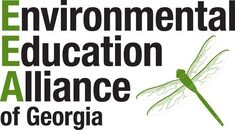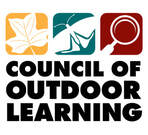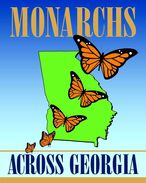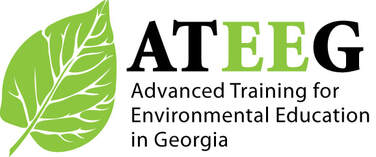Environmental Education Alliance of Georgia
- Our Story
- Our Team
- Our Events
-
Our Resources
- Wildlife Viewing
- Earth Month Activities
- Garden-based Learning
- EcoEngineering Challenges
- Community (Citizen) Science
- Phenomenon-Based Learning
- Problem-Based Learning
- Place-Based Learning
- Project-Based Learning
- Teaching about Climate Change
- Teaching about EJ
- Zero Waste Heroes
- SAGES Project
- Virtual EE Resources
- Environmental Clubs
- Evaluation and Assessment
-
Our Work
- Our News
- Our Impact
- JOIN or GIVE
- Member Portal
- Contact Us
- Outdoor Learning Store
- PassTick2023-4
- Annual Report
- New Page
- Past 2022 EEA Conference
- Past EEA Board 2021-22
- Past 2022 conferenceoverview
- Non-clickable Page
- New Page
- EEA Guest Blog
- Our Story
- Our Team
- Our Events
-
Our Resources
- Wildlife Viewing
- Earth Month Activities
- Garden-based Learning
- EcoEngineering Challenges
- Community (Citizen) Science
- Phenomenon-Based Learning
- Problem-Based Learning
- Place-Based Learning
- Project-Based Learning
- Teaching about Climate Change
- Teaching about EJ
- Zero Waste Heroes
- SAGES Project
- Virtual EE Resources
- Environmental Clubs
- Evaluation and Assessment
-
Our Work
- Our News
- Our Impact
- JOIN or GIVE
- Member Portal
- Contact Us
- Outdoor Learning Store
- PassTick2023-4
- Annual Report
- New Page
- Past 2022 EEA Conference
- Past EEA Board 2021-22
- Past 2022 conferenceoverview
- Non-clickable Page
- New Page
- EEA Guest Blog
EEA INITIATIVES
Environmental education might bring to mind thoughts of young children exploring nature, but college students are also engaged with the environment in many different ways. They take courses in environmental studies, go on field investigations, organize campus sustainability programs and environmental clubs, prepare for future careers, participate in outdoor recreation, and share concerns about the health of the planet they've inherited. EEA advocates for all college and technical school students to have a chance to explore environmental careers, for all future educators to be prepared to teach any subject through an environmental lens, and for all people to continue connecting with nature and learning about the environment throughout their lives.
Preparation of Future Environmental Educators
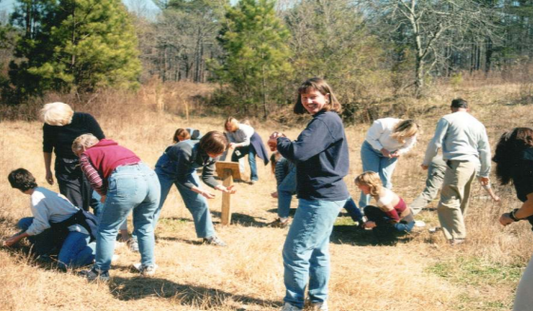
There are 66 Georgia colleges that offer teaching degrees. With almost 1,000 education majors at Kennesaw State University alone (where the Bagwell College of Education is the largest such program in the state) and more than 7,200 education majors statewide, EEA's hope is that these future teachers appreciate the role they can play in teaching any subject through an environmental lens. Many graduates in science content areas and non-formal educators (e.g., naturalists, park rangers, interpreters) also may eventually practice environmental education. Their capacity to engage future students in real-world science investigations and problem-solving will go a long way toward convincing the next generation that they can make a difference.
EEA encourages and supports pre-service educators with a certification program, conferences, symposia, workshops, webinars, educational materials, and a special low-cost student "nymph" membership, which provides access to additional resources. Find more information on colleges in Georgia with environmental education majors or minors.
EEA encourages and supports pre-service educators with a certification program, conferences, symposia, workshops, webinars, educational materials, and a special low-cost student "nymph" membership, which provides access to additional resources. Find more information on colleges in Georgia with environmental education majors or minors.
Sustainability on Campus & Environmental Justice in Communities
College students organize campus sustainability initiatives, recycling and environmental clubs, STEM festivals, and innovation incubators for environmental problem-solving. Young adults also serve communities through AmeriCorps, VISTA, and Greening Youth Foundation by working toward conservation careers, increasing food security, creating healthy communities, and introducing children to environmental education. EEA recognizes the efforts of these 20-somethings who are making a significant impact in Georgia communities.
Environmental Literacy Requirements for Graduation
The University of Georgia is one of the few colleges in the country that requires all undergraduate students complete an environmental literacy requirement (ELR). A recent assessment revealed widespread acceptance of this requirement, but confusion and debate over which courses should be allowed to satisfy it. In the 27 years since UGA's environmental literacy requirement was put in place, there have been changes in leadership and in the policy's perceived value. However, it remains an innovative model for other universities in Georgia and across the country. To learn more, check out the following abstract of an article published in the The Journal of Environmental Education, and this list of courses that satisfy the environmental literacy requirement.
Abstract: The University of Georgia (UGA) is one of the first universities in the United States to require that every undergraduate student complete an environmental literacy requirement (ELR). The ELR has been in place since 1993. Three students examined the ELR through formal and informal studies and surveys. Their results showed that students were enthusiastic about the ELR and that they welcomed increased knowledge about the environment. Faculty thought that the ELR was useful but were dissatisfied with the criteria defining environmental literacy. The studies showed that there was wide interest and acceptance of an ELR but that lack of coordination and leadership has resulted in debate about its role in the institution. Although debate threatens the survival of this special requirement, modest changes in the ELR will likely save it. The experiences of UGA will be of value to other academic institutions contemplating a broad environmental requirement.
Citation: Moody, Gwyneth & Alkaff, Huda & Garrison, Dawn & Golley, Frank. (2005). Assessing the Environmental Literacy Requirement at the University of Georgia. The Journal of Environmental Education. 36. 3-9. 10.3200/JOEE.36.4.3-9.
Abstract: The University of Georgia (UGA) is one of the first universities in the United States to require that every undergraduate student complete an environmental literacy requirement (ELR). The ELR has been in place since 1993. Three students examined the ELR through formal and informal studies and surveys. Their results showed that students were enthusiastic about the ELR and that they welcomed increased knowledge about the environment. Faculty thought that the ELR was useful but were dissatisfied with the criteria defining environmental literacy. The studies showed that there was wide interest and acceptance of an ELR but that lack of coordination and leadership has resulted in debate about its role in the institution. Although debate threatens the survival of this special requirement, modest changes in the ELR will likely save it. The experiences of UGA will be of value to other academic institutions contemplating a broad environmental requirement.
Citation: Moody, Gwyneth & Alkaff, Huda & Garrison, Dawn & Golley, Frank. (2005). Assessing the Environmental Literacy Requirement at the University of Georgia. The Journal of Environmental Education. 36. 3-9. 10.3200/JOEE.36.4.3-9.
|
Environmental Education Alliance, Inc.
P.O. Box 801066 | Acworth, GA 30101 EEA does not does not discriminate on the basis of race, color, national origin, sex, age, or disability in its program , activities, or employment. For more information on EEA's non-discrimination commitment click here . Grievance officer may be contacted at [email protected] |
Proudly powered by Weebly
|
